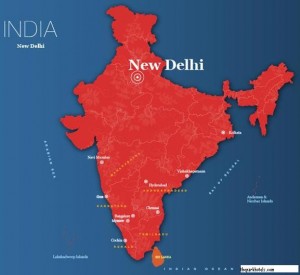Using Language Skills for Environmental Advocacy Work in India — by Kathleen M.L., GLN Global Giver Fellow
 With a focus on access to justice in the sector of environmental and sustainable development law, my environmental advocacy program has gained a clear vision and concrete support through multiple NGOs in India. While creating an environmental advocacy program has been a strenuous project, gaining basic Urdu skills through GLN has helped to expand my project into multiple at risk communities surrounding the New Delhi area. Oftentimes these communities are unable to consume information from outsiders either because the information isn’t conveyed through means they can understand (i.e. written information pamphlets) or because there aren’t on-the-ground individuals willing to bring the necessary information into the communities.
With a focus on access to justice in the sector of environmental and sustainable development law, my environmental advocacy program has gained a clear vision and concrete support through multiple NGOs in India. While creating an environmental advocacy program has been a strenuous project, gaining basic Urdu skills through GLN has helped to expand my project into multiple at risk communities surrounding the New Delhi area. Oftentimes these communities are unable to consume information from outsiders either because the information isn’t conveyed through means they can understand (i.e. written information pamphlets) or because there aren’t on-the-ground individuals willing to bring the necessary information into the communities.
To tackle these two big hurdles, I have sought out individuals working with environmental filmography (to create an oral and visual narrative) and I have sought out NGOs who have access to these communities. These two components will allow me to present my project in the most effective, passionate, and community-driven manner as possible. Facilitating my GLN Urdu language skills has allowed me to gain access to communities that are difficult to access and often apprehensive to listen to those coming from Western cultures. I began taking GLN courses with just an idea of what I wanted to create. But in these past couple of months, with language support from GLN, and many learning curves, my project now has a clear action plan for integration using different media outlets to convey the importance of basic rights to living in a safe and healthy environment.

Unfortunately, GLN couldn’t offer the next level of Urdu, so I have enrolled in German this semester. This might seem disconnected – but did you know, Urdu and German are quite similar? They both fall into the Indo-Germanic language family – with small similarities, such as having the same number of vowels, to larger similarities, such as how to grammatically construct sentences. While the art of languages should be consistently honored, it is important to keep in mind how similar we all are as humans – from the roots of the language we speak to our basic environmental rights.
